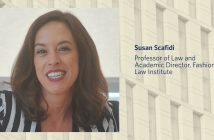Professors Jed Shugerman and Ethan Leib ‘s opinion piece about President Trump’s pardon power as it relates to self-protection was mentioned in an ABA Journal article.
Jed Shugerman and Ethan Leib of Fordham University point to the “take care” clause of Article II, Section 3. The section says the president “shall take care that the laws be faithfully executed.”
Lawyers in the 18th century used the phrase “faithfully execute” in trusts and other legal instruments to impose duties of loyalty and care to others, the law professors say.
“Our Constitution’s designers wanted public officials to be subject to the same kinds of fiduciary obligations that CEOs, trustees and lawyers are routinely held to in the private sector,” they write. “Those duties prohibit self-dealing and acting under a conflict of interest.
“Therefore, ‘self-pardoning’ or pardoning your closest associates for self-interested reasons should not pass legal muster, because it violates the fiduciary law of public office.”
Shugerman and Leib also argue the clause could limit the president’s power to fire some officials.
“Therefore, firing a special counsel for largely self-protective reasons would violate the president’s obligation to act for only the right kinds of reasons,” they argue. “With strong enough evidence of motive or purpose, a special counsel such as (Robert) Mueller might even be able to obtain an injunction to block such an impermissible firing.”




